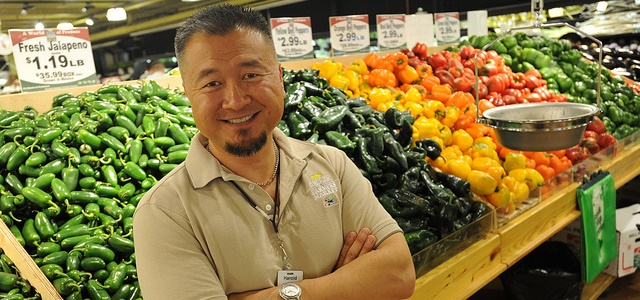 Immigrant entrepreneurship has transformed Atlanta’s northeastern suburbs along and near Buford Highway into “International Village” – an area filled with immigrant restaurants, markets, specialty stores, and other businesses. Through ventures such as Chinatown Square, Asian Square Mall, and Plaza Fiesta immigrants have “economically and socially revived an area that faced economic stagnation and population decline.” As one researcher noted, “the five-mile stretch of highway running through Chamblee, Doraville, and Norcross constitutes the greatest concentration of ethnic-owned businesses in the southeastern U.S.”
Immigrant entrepreneurship has transformed Atlanta’s northeastern suburbs along and near Buford Highway into “International Village” – an area filled with immigrant restaurants, markets, specialty stores, and other businesses. Through ventures such as Chinatown Square, Asian Square Mall, and Plaza Fiesta immigrants have “economically and socially revived an area that faced economic stagnation and population decline.” As one researcher noted, “the five-mile stretch of highway running through Chamblee, Doraville, and Norcross constitutes the greatest concentration of ethnic-owned businesses in the southeastern U.S.”
Throughout the country, examples of the role immigrants play in promoting economic growth and community development abound:
- In Georgia overall, almost sixteen percent of all business owners were immigrants in 2010, and in the Atlanta metropolitan area, that figure was even higher at 21 percent.
- In 2010, in Missouri, 4.6 percent of all business owners were foreign-born and new immigrant business owners had total revenue of $650 million. Additionally, the immigrant share of business owners was 8 percent in the St. Louis metropolitan area, a rate higher than the foreign-born share of the total population.
- In 2010, in New Jersey, 28 percent of all business owners were immigrants, comprising over 22 percent of business income in the state.
- In Oregon, many immigrants and refugees have become entrepreneurial farmers of crops from their native countries – including Burma, Bhutan, Cambodia, and Nepal – selling their produce at local farmers markets in Portland and throughout the state.
- In small towns across Tennessee – places like Bells, Monterey, Shelbyville, and Morristown – immigrants have opened shops and restaurants to cater to the populations working in nearby agricultural and food processing industries.
- The State of Washington is home to many successful companies with at least one founder who was an immigrant or child of an immigrant, including large businesses such as Nordstrom, Weyerhaeuser Company, Costco Wholesale, and Amazon.com. Those four companies together employ over 250,000 people and bring in $180 billion in revenue each year.
As the evidence of their economic importance grows, cities and metropolitan areas are devoting more attention to pursuing policies and initiatives to welcome immigrants, facilitate immigrant integration, and encourage immigrant entrepreneurship. The New York Times recently profiled these initiatives, focusing in particular on Dayton, Ohio, whose Welcome Dayton initiative has long been a model for other cities hoping to reboot their older downtowns and re-energize their communities by attracting immigrants.
Dayton, whose suburban neighbors on three sides are represented by House Speaker John Boehner, is in the forefront of a movement that is doing everything it can within the system to encourage immigration, and is tired of waiting. Dayton’s Mayor Gary Leitzell remarked, “We’ve found that we can repopulate our city and we can educate the people and inspire them to employ themselves. In 10 years, when the federal government figures everything out, we’ll be thriving.” And while this may be true for Dayton, the future economic vitality of the country depends in part on creating more space and opportunity for immigrants to contribute to communities through immigration reform legislation.
Photo of Howard Shinn, President of the Buford Highway Farmer’s Market, Courtesy of Southern Foodways Alliance.
FILED UNDER: Entrepreneurship, Georgia, Welcoming Initiatives


